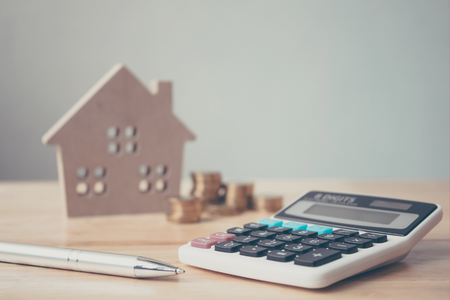Welcome To Our Mortgage Educational Blog About:
How Much Mortgage Can I Afford?

Mortgages are one of the biggest purchases you’ll ever make, so it’s important to understand how mortgage payments work in order to make sure you don’t end up with more houses than you can afford. Many people who take out mortgages aren’t aware of how much they can afford, and they end up falling behind on their payments or, worse, losing their homes due to foreclosure. If you want to be sure you’re paying the right amount each month, keep reading for info on calculating your monthly mortgage payment and other related topics like mortgage prepayment penalties.
How to Know Exactly How Much Mortgage You Can Afford
Most professional, established lenders will base their ability-to-pay calculation on your income, but they’ll also consider other factors such as how much cash you have in reserves. While most lenders use similar ratios when determining how much mortgage a person can afford, some are stricter than others.
If you as first time homebuyers want to keep things simple and ensure you’re getting as large of a loan as possible without having to pay extra for private mortgage insurance (PMI), aim for an overall debt-to-income ratio of 43% or less. At that level, you should be able to qualify for just about any size loan up to 80% of your home’s value. But in general, any homeowner can afford 2X to 2.5X of their annual income without PMI as long as they don’t have too many outstanding debts or expenses.
For example, someone earning $50,000 per year should be able to take out a $100,000 mortgage and still fit within that 43% guideline. You might be wondering what makes someone eligible for such big loans—aren’t credit scores important? Yes and no. Lenders won’t check your credit score directly when considering whether to approve you for financing; instead, they’ll look at certain indicators like your debt history and current financial situation to determine if you’re qualified and likely to repay back what you borrow.
How Do Lenders Determine Mortgage Loan Amounts?
Lenders have a wide range of guidelines for what constitutes an affordable loan amount, but there are some crucial factors that come into play when determining how much you can borrow. Be sure to read our detailed guide where we share some actionable tips for first time home buyers to make the mortgage process go a little smoother.
Gross Income
The first factor that lenders consider is your gross income or total income earned before taxes. Lenders typically allow a certain amount of your gross income to be used for making mortgage payments. For example, if your monthly mortgage payment is $2,000, your total housing expense cannot exceed $2,000 per month.
Front-End Ratio
The second-factor lenders use to determine how much you can borrow is your front-end ratio or housing ratio. The front-end ratio represents the percentage of your monthly income that goes toward paying down the mortgage loan itself. This number is calculated by dividing your monthly housing expenses by your gross monthly income. For example, if you earn $5,000 per month and spend $1,500 on paying down the mortgage loan each month, the front-end ratio is 30 percent ($1,500 divided by $5,000 = .30).
Back-End Ratio
Your back-end ratio is one of the most important factors in determining whether or not you will qualify for a home loan. While there are other factors in play, such as your income and employment history, the back-end ratio is what gives lenders an idea of how much house you can really afford. It consists of two numbers: the amount of money you earn each month (your gross monthly income) and the amount of money you spend each month (your monthly debts).
To determine if you will qualify for a home loan, lenders look at what percentage of your gross monthly income goes towards paying off any pre-existing debts. In other words, it is an estimate of how much money is left over each month after paying down all your bills and obligations. For example, let’s say that you earn $3,000 per month and spend $1,500 on credit card payments every month; in total, $2,500 goes toward non-mortgage-related expenses.
Your Credit Score
When you apply for a mortgage, the lender will pull your credit report. The lender will want to see that you have a history of paying your bills on time. If you have missed payments in the past, the lender may consider how long ago the late payments were and how recent your current record has been.
If you have no credit history, it may be more difficult for the lender to approve your application because there is little information about how well you manage your money. However, if your credit score is low due to poor spending habits or mismanagement of debt, the lender may not be able to approve your application without additional documentation or explanation from you.
How Much Equity You Have in Your Home
If you own your home outright, lenders are generally willing to loan up to 80% of the value of your property. If you do not own your home outright, lenders will determine the amount they are willing to loan you by using two ratios, the Loan to Value Ratio and Combined Loan-to-Value (CLTV) ratio.
Loan to Value Ratio
The loan-to-value ratio is the percentage of the value of your home that the lender is willing to loan you. For example, if your home is worth $300,000 and the lender is willing to loan up to 80% of its value, it will loan you $240,000 ($300,000 x 0.8).
Conclusion
In conclusion, there are many factors that contribute to whether or not you will qualify for a home loan. The best way to know exactly how much mortgage you can afford is to work with a lender and analyze your financial situation carefully. If you are unsure of your ability to qualify for a home loan, consider talking with an experienced broker who will be able to help ensure that your application is accepted by securing loans specifically designed for non-traditional situations.
Don’t hesitate to contact us with any questions you may have.
Recent Educational Blogs
First Responder Mortgage Program
Jan 2026 | First Responder Mortgage ProgramAt Metro Mortgage Group, we have deep respect for the everyday heroes of our city — the members of the Edmonton Police Service, EMS, and Fire Rescue Services. Your commitment keeps our community safe, often at great personal...
Pros and Cons of a Home Equity Line of Credit (HELOC)
Dec 2025 | Pros and Cons of a Home Equity Line of Credit (HELOC)If you’re a Canadian homeowner, you’ve probably heard friends or family talk about using a home equity line of credit, or HELOC. People often use it to renovate, consolidate debt, or help kids with school...
What the Latest Bank of Canada Rate Cut Means for Canadian Borrowers and Homeowners
Nov 2025 | What Rate Cut Means for Canadian Borrowers and Homeowners On October 29, 2025, the Bank of Canada made headlines by cutting its benchmark policy rate by 25 basis points. This move brought the policy rate down to 2.25%. For Canadians with mortgages, loans,...



